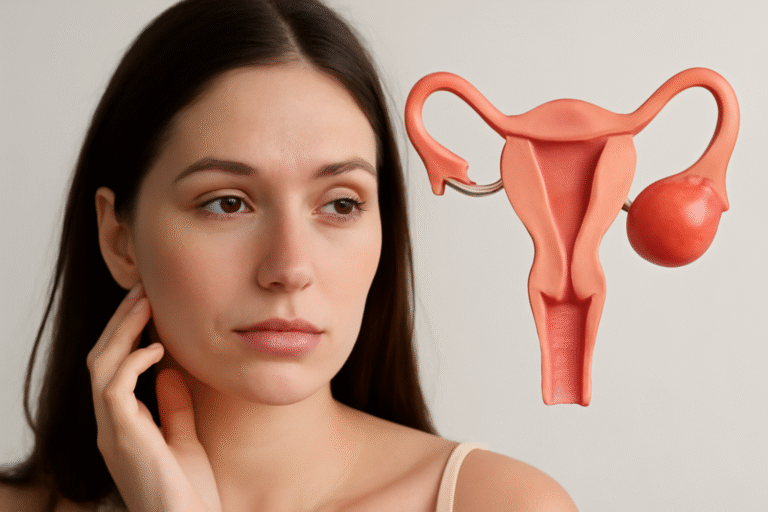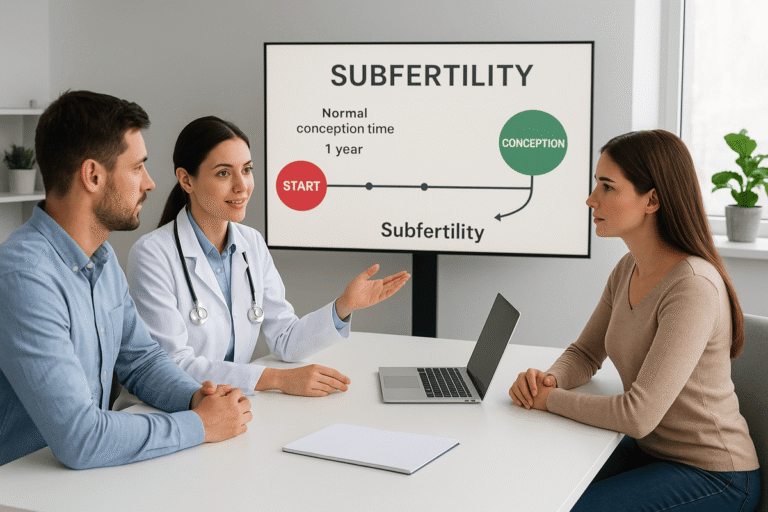How Many Eggs Do Women Have? Let’s Dive In!
Ever wondered how many eggs women are born with and how they change over time? In this article, we’ll take a closer look at the egg supply from birth to menopause, how age affects fertility, and the options available, like egg freezing, for those considering family planning at a later stage in life.
The Egg Supply You’re Born With
The truth is, women are born with all the eggs they’ll ever have. That’s right—when a female baby is still in the womb, she’s already got millions of eggs waiting for the right time to mature. In fact, at about 20 weeks of pregnancy, the number of eggs in a female fetus can be as high as 6 million!
However, by the time a baby girl is born, that number shrinks. She will only have between 1 million and 2 million eggs left. It’s a significant drop, and it’s a natural occurrence.
Also read: Vasomotor Symptoms: A Guide To Hot Flashes and Night Sweats
The Journey From Birth to Puberty
So, what happens next? These eggs don’t just sit around doing nothing. As a girl grows up, the number of eggs in her ovaries continues to decrease over time. By the time she hits puberty, usually between the ages of 8 and 15, there will be about 300,000 to 400,000 eggs left in her ovaries.
Puberty is when the body starts to get ready for menstruation. The eggs start to mature, and the menstrual cycle begins.

How Many Eggs Are Lost Every Month?
Now, once puberty is over and the menstrual cycle starts, women lose eggs each month. Here’s how it works: every month, a group of eggs is chosen to begin maturing. Out of that group, only one egg becomes the “chosen one” and is released during ovulation. The rest of the eggs from that group don’t cut, they die off. This happens every single month.
It’s estimated that about 1,000 eggs die off every month after puberty, even though only one is used during ovulation.
Egg Count in Your 30s and 40s
As women enter their 30s and 40s, the number of eggs they have continues to decline. By the time a woman is in her early 30s, fertility starts to decline slowly. By age 40, she may have only about 10% of the eggs she had at birth. As the years pass, conceiving can become more challenging.
In your 40s, things are more unpredictable. Some women may still have enough eggs to conceive naturally, but many will find that their chances of pregnancy each month are lower. It’s also important to note that lifestyle factors like smoking can speed up the process of egg loss.
Quality Matters Too
It’s not just about the number of eggs you have—it’s also about their quality. As women age, not only does the quantity of eggs decrease, but their quality also drops. Older eggs are more likely to have errors during the division process, which can lead to problems like chromosomal abnormalities. This is why older women are at a higher risk of having babies with conditions like Down syndrome.
What Happens After Menopause?
Eventually, the number of viable eggs runs out, and that’s when menopause happens. Menopause marks the end of a woman’s reproductive years. The ovaries stop producing eggs, and estrogen levels decrease. The average age for menopause is 51, but it can happen earlier or later for different women.
What Does All This Mean for You?
If you’re considering having children in the future, it’s essential to understand the egg timeline. Egg freezing, also known as fertility preservation, is an option for women who want to delay pregnancy. Freezing eggs when you’re younger can give you a better shot at having children later in life. It’s something many women consider before undergoing treatments like chemotherapy, which can affect fertility.
Ultimately, the number of eggs you have doesn’t just define your fertility. It’s one part of a bigger picture, which includes factors such as overall health and lifestyle. If you have concerns about your eggs, fertility, or family planning, it’s always a good idea to talk to your doctor or a fertility specialist.





[…] Do Women Have a Certain Number of Eggs? A Comprehensive Manual That You Must Have […]